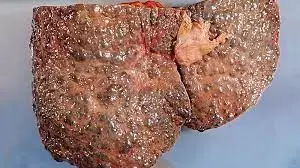- Home
- Medical news & Guidelines
- Anesthesiology
- Cardiology and CTVS
- Critical Care
- Dentistry
- Dermatology
- Diabetes and Endocrinology
- ENT
- Gastroenterology
- Medicine
- Nephrology
- Neurology
- Obstretics-Gynaecology
- Oncology
- Ophthalmology
- Orthopaedics
- Pediatrics-Neonatology
- Psychiatry
- Pulmonology
- Radiology
- Surgery
- Urology
- Laboratory Medicine
- Diet
- Nursing
- Paramedical
- Physiotherapy
- Health news
- Fact Check
- Bone Health Fact Check
- Brain Health Fact Check
- Cancer Related Fact Check
- Child Care Fact Check
- Dental and oral health fact check
- Diabetes and metabolic health fact check
- Diet and Nutrition Fact Check
- Eye and ENT Care Fact Check
- Fitness fact check
- Gut health fact check
- Heart health fact check
- Kidney health fact check
- Medical education fact check
- Men's health fact check
- Respiratory fact check
- Skin and hair care fact check
- Vaccine and Immunization fact check
- Women's health fact check
- AYUSH
- State News
- Andaman and Nicobar Islands
- Andhra Pradesh
- Arunachal Pradesh
- Assam
- Bihar
- Chandigarh
- Chattisgarh
- Dadra and Nagar Haveli
- Daman and Diu
- Delhi
- Goa
- Gujarat
- Haryana
- Himachal Pradesh
- Jammu & Kashmir
- Jharkhand
- Karnataka
- Kerala
- Ladakh
- Lakshadweep
- Madhya Pradesh
- Maharashtra
- Manipur
- Meghalaya
- Mizoram
- Nagaland
- Odisha
- Puducherry
- Punjab
- Rajasthan
- Sikkim
- Tamil Nadu
- Telangana
- Tripura
- Uttar Pradesh
- Uttrakhand
- West Bengal
- Medical Education
- Industry
Long-term carvedilol therapy reduces decompensation risk among cirrhosis patients

Carvedilol significantly decreases the risk of decompensation in patients with cirrhosis and clinically significant portal hypertension (CSPH), mainly by reducing risk of ascites suggests a recent study published in the Journal of Hepatology.
Whether non-selective β-blockers can prevent decompensation of cirrhosis warrants clarification. Carvedilol might be particularly effective since its intrinsic vasodilatory activity may ameliorate hepatic vascular resistance, a major mechanism of portal hypertension in early cirrhosis. They assessed whether carvedilol may prevent decompensation and improve survival in patients with compensated cirrhosis and clinically significant portal hypertension (CSPH).
By systematic review we identified randomized-controlled trials (RCTs) comparing carvedilol vs. control therapy (no-active treatment or endoscopic variceal ligation [EVL]) in patients with cirrhosis and CSPH without previous bleeding. They performed a competing-risk time-to-event meta-analysis using individual patient data (IPD) obtained from principal investigators of RCTs. Only compensated patients were included. Primary outcomes were prevention of decompensation (liver transplantation and death were competing events) and death (liver transplantation was a competing event). Models were adjusted using propensity scores for baseline covariates with the inverse probability of treatment weighting (IPTW) approach.
Results:
Among 125 full-text studies evaluated, 4 RCTs were eligible.
- The 4 provided IPD and were included, comprising 352 patients with compensated cirrhosis, 181 treated with carvedilol and 171 controls (79 received EVL and 92 placebo).
- Baseline characteristics were similar between groups. Standardized differences were <10% by IPTW. The risk of developing decompensation of cirrhosis was lower with carvedilol than in controls, mainly due to a reduced risk of ascites
- The risk of death was also lower with carvedilol
Long-term carvedilol therapy reduced decompensation of cirrhosis and significantly improved survival in compensated patients with CSPH. This suggests that screening patients with compensated cirrhosis for CSPH to enable the prompt initiation of carvedilol could improve outcomes.
Reference:
Càndid Villanueva, et al. Carvedilol reduces the risk of decompensation and mortality in patients with compensated cirrhosis in a competing-risk meta-analysis. May 31, 2022. DOI: https://doi.org/10.1016/j.jhep.2022.05.021
Keywords:
Càndid Villanueva, Ferran Torres, Shiv Kumar Sarin, Edilmar Alvarado, Jaume Bosch, Carvedilol, reduces, risk, decompensation, mortality, patients, compensated, cirrhosis, competing-risk meta-analysis, Journal of Hepatology
Dr. Shravani Dali has completed her BDS from Pravara institute of medical sciences, loni. Following which she extensively worked in the healthcare sector for 2+ years. She has been actively involved in writing blogs in field of health and wellness. Currently she is pursuing her Masters of public health-health administration from Tata institute of social sciences. She can be contacted at editorial@medicaldialogues.in.
Dr Kamal Kant Kohli-MBBS, DTCD- a chest specialist with more than 30 years of practice and a flair for writing clinical articles, Dr Kamal Kant Kohli joined Medical Dialogues as a Chief Editor of Medical News. Besides writing articles, as an editor, he proofreads and verifies all the medical content published on Medical Dialogues including those coming from journals, studies,medical conferences,guidelines etc. Email: drkohli@medicaldialogues.in. Contact no. 011-43720751


